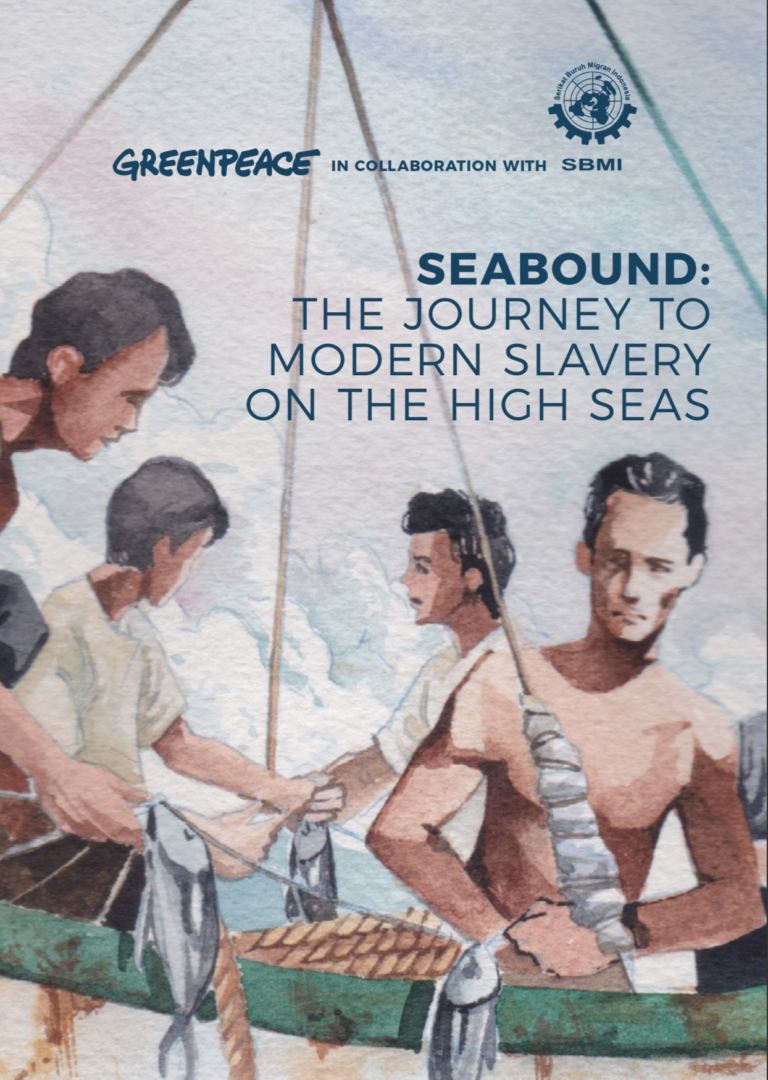For several years now, international media has shone a spotlight on the inhumane working conditions of migrant fishers from Southeast Asia. The vessels they work on reportedly use destructive, illegal, and unreported methods, which take a heavy toll on the health and viability of our already fragile oceans.
By the fishers’ own accounts, lured by promises of higher wages, many find themselves indebted to shady brokers and employment agencies. Through salary deductions, as indicated in their payment schedules, Indonesian migrant fishers have to pay guarantee deposits and processing costs, far in excess of the amounts they were expecting, for the first 6 to 8 months of their employment. As a result, they often work ridiculous hours in one of the world’s most dangerous industries, for little or no pay. This alone suggests modern slavery, but the issues at hand are multifarious and just as heart-wrenching.
Isolation at sea for months, even years, makes escape difficult and often impossible. It is all too easy for these vessels to operate away from the reach of the law. Such a scenario, where fishing vessel captains rule with impunity, makes modern slavery at sea possible. Through direct interviews, paper trail, and corroborative information, Greenpeace Southeast Asia describes the alleged working conditions as claimed by Indonesian and Filipino migrant fishers on distant water fishing fleets.
Central to this report are the 13 suspected foreign fishing vessels where 34 Indonesian migrant fishers have reported conditions which suggest signs of forced labour. Four main complaints have been identified: deception involving 11 foreign fishing vessels; withholding of wages involving 9 foreign fishing vessels; excessive overtime involving 8 foreign fishing vessels; physical and sexual abuse involving 7 foreign fishing vessels.
Dwindling fish populations are forcing vessels to seek fish further and further out to sea, which results in higher operation costs and increases the possibility of violation and exploitation of migrant fishers who endure backbreaking work just to make a living.
The fates of migrant fishers remain uncertain because the crimes they allege that were committed against them usually happen out in the open sea, far away from the scrutiny of regulators who might ensure their proper working conditions and safety.
As a result of the learnings outlined in this report, Greenpeace Southeast Asia strongly emphasises the need for ASEAN member States, particularly the Philippine and Indonesian governments, to take concrete policy actions to address the labour and environmental issues cited and ensure that modern slavery at sea becomes a thing of the past.

